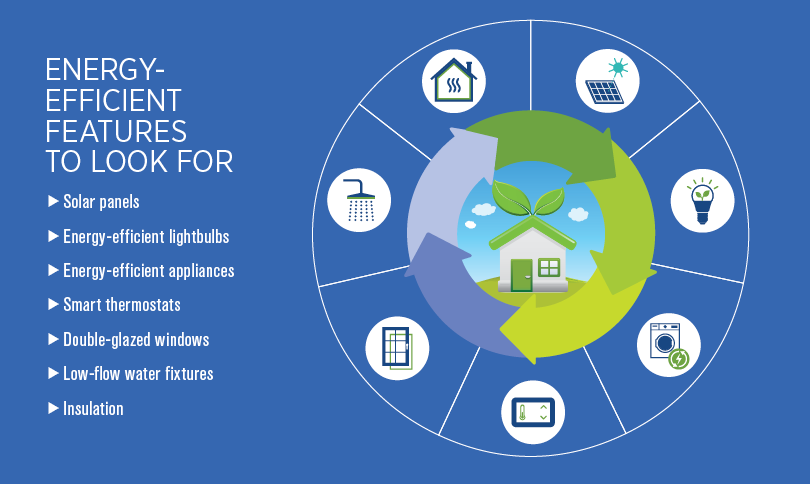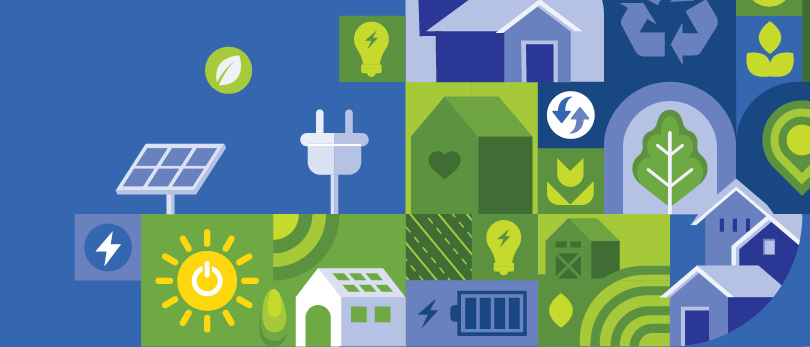Knowing the ins and outs of green or eco-friendly homes can allow an agent to stand out among their peers
By Rebecca Lubecki
In today’s market, customers increasingly prefer eco-friendly and energy-efficient products and services. This trend also extends to their preferences for homes. To meet the demands of these environmentally conscious clients, real estate agents must gain a deep understanding of the features that appeal to those seeking a green home. Additionally, agents should devise effective marketing strategies to promote and market these environmentally friendly properties.
John Young, CRS, a sales agent at RE/MAX Excellence Realty in Silver Spring, Maryland, explains, “I think there is a huge interest, but people aren’t coming to me and specifically saying that eco-friendly features are a ‘make or break’ for them when they shop for a home.”
Overall, Young emphasizes that buyers’ desire for eco-friendly homes remains mixed and to know your audience. “If I mention an induction range or a tankless water heater, buyers know what I’m talking about and respond to it,” Young says. “But then there are people on the other side who have no idea, and I’m the one having to educate them. It’s going to get overlooked by a lot of people.”
The clients seeking greener homes
While buyers’ desire for eco-friendly homes remains 50/50, the preference can depend on age, geographic location and other factors. One is that many of these greener features, such as LED lightbulbs and Wi-Fi thermostats, have become standard, and buyers aren’t viewing these as “eco-friendly” anymore.
“I have never had a client reject a property over not having green features,” says Fred LaBell, CRS, a broker associate at HomeSmart Elite Group in Scottsdale, Arizona. “Most homes we see today already have some smart features, like Wi-Fi thermostats, video doorbells, Wi-Fi garage door openers and more. And solar power in Arizona is questionable because of initial cost, service, transferability and warranties.”
LaBell adds that most of his clients make decisions based on location and price. For the ones seeking out those eco-friendly features, Young says one feature to pique their interest is an electric vehicle charger, as more young people drive hybrids and electric cars.
“We used to say, ‘Well, here’s the garage.’ But now, when they walk in, buyers ask, ‘Does it have an electric car charger?’ So that’s a green element that more people want.” Young mentions that tankless water heaters, smart home technology and induction cooktops are greener features that are also growing in popularity.
Young says he notices the younger buyers are seeking eco-friendly additions. “In conversations with these clients, I feel like that’s important to them. They say, ‘I feel I have a responsibility to do whatever I can. And if I can contribute by making my house greener, cutting down on my carbon emissions and doing things like that, I’m interested.’”
These features are favored not only because they can save them money in the long run but also because they feel like it’s doing something positive for the environment, Young says.

Working with sellers
But what should residential real estate professionals know if they’re working with sellers?
“The way I approach this with a seller is I always ask, ‘What do I need to know about your house that you’ve done in the form of improvements that I might not know?’ Because I can see if solar panels are on the house, but I might not see something else they did, like spray foam insulation in their attic,” Young says. “If they tell me these things, I can use them to market their house. I can put verbiage in the listing to say that the insulation was brought up to current standards or better.”
Get Smart, Get Certified
One way consumers can make their homes more eco-friendly is by installing smart home technologies throughout their properties. For agents who may not know much about how to market a smart home, RRC has them covered.
RRC’s Smart Home Certification demonstrates to buyers and sellers that an agent is dedicated to developing expertise about the technology, privacy issues and best transition tactics to help with a smart home sale.
Training and certification increase your technical and listing skills and add value for the clients you represent by equipping you with the skills and tools to identify what qualifies as a smart home and advise them on how to value the technology. The Smart Home Certification will also help differentiate you from your peers.
Learn more about RRC’s Smart Home Certification at CRS.com/learn/certificates/smart-home-certification.
Photo: iStock.com/innni








